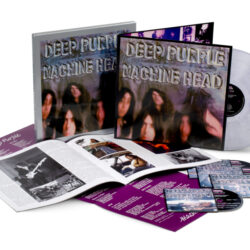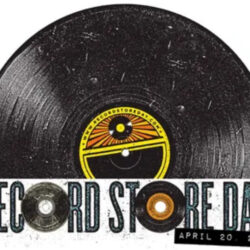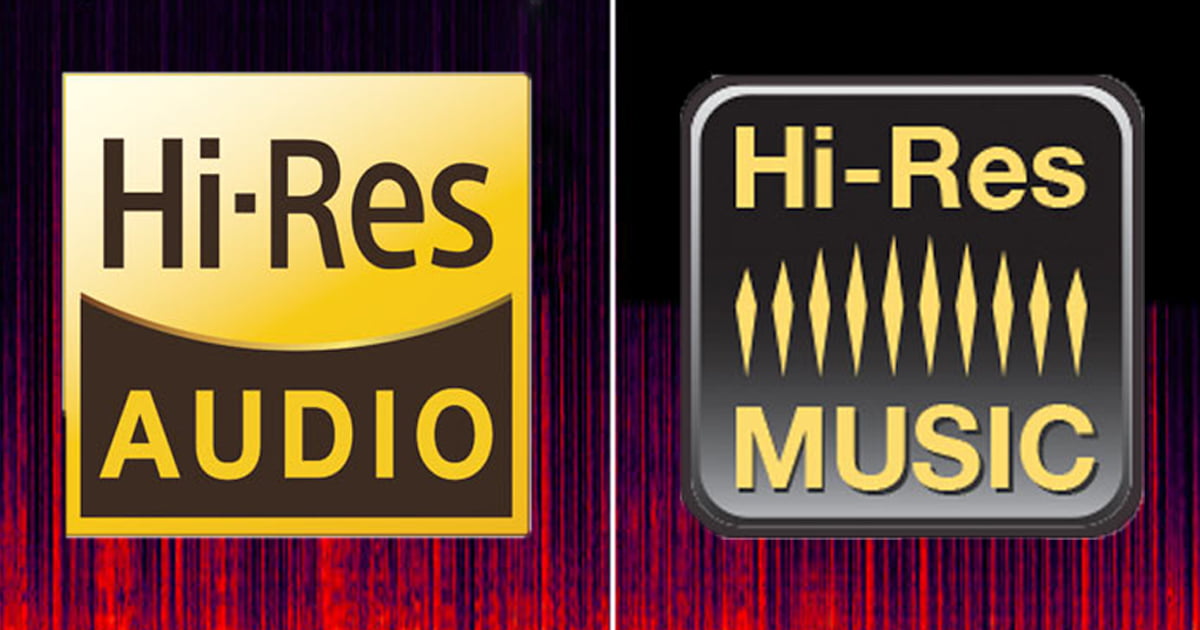It’s the time of year for saving money!
 If we look at our music collections honestly, particularly audiophiles with a long history of collecting, much of the music we like and enjoy may easily be decades old. Many of our favorite works went out of print long ago. Anyone like myself who has LP’s dating back to their high school days, or at least thirty or more years ago, may conceivably have an LP that is somewhat worn or with a lot of scratches and surface noise. CD’s are not immune either. They could have also become scratched and let’s face it, many early 1980’s CD’s were not that well recorded to begin with. What, then, does an audiophile do if a favorite LP purchased in 1974 now sounds terrible – or that CD bought in 1982 sounds much worse than modern recordings? One unfortunate choice is learn to live with the disappointment. Another is to buy a modern version if it exists.
If we look at our music collections honestly, particularly audiophiles with a long history of collecting, much of the music we like and enjoy may easily be decades old. Many of our favorite works went out of print long ago. Anyone like myself who has LP’s dating back to their high school days, or at least thirty or more years ago, may conceivably have an LP that is somewhat worn or with a lot of scratches and surface noise. CD’s are not immune either. They could have also become scratched and let’s face it, many early 1980’s CD’s were not that well recorded to begin with. What, then, does an audiophile do if a favorite LP purchased in 1974 now sounds terrible – or that CD bought in 1982 sounds much worse than modern recordings? One unfortunate choice is learn to live with the disappointment. Another is to buy a modern version if it exists.
 In the LP world, availability of reissues represents potential new markets. When I look through the new albums at my local record store, I see many titles I already own but purchased years or decades ago. One I noticed the other day was a reissue of Deep Purple “Made In Japan.” This release originally came out in 1972. Clearly it stands to reason the brand new, sealed, pristine copy I recently held in my hands at Manifest Records had not been hanging around for forty-seven years. Obviously it was a reissue. I have nary a clue what I paid for my version purchased when originally released, but undoubtedly it was substantially less than the $50.00 Manifest was asking for the one in their racks. While the reissue market for LP’s is pretty obvious, CD’s are not being left out as reissues are available for them as well.
In the LP world, availability of reissues represents potential new markets. When I look through the new albums at my local record store, I see many titles I already own but purchased years or decades ago. One I noticed the other day was a reissue of Deep Purple “Made In Japan.” This release originally came out in 1972. Clearly it stands to reason the brand new, sealed, pristine copy I recently held in my hands at Manifest Records had not been hanging around for forty-seven years. Obviously it was a reissue. I have nary a clue what I paid for my version purchased when originally released, but undoubtedly it was substantially less than the $50.00 Manifest was asking for the one in their racks. While the reissue market for LP’s is pretty obvious, CD’s are not being left out as reissues are available for them as well.
 Some releases are redone because the artist wanted it so. One great example was Billy Joel’s “Cold Spring Harbor.” First released in 1971 by Family Productions, the mastering was not correct and was a little fast. Joel remarked he sounded like Alvin and the Chipmunks and was so incensed, if the rumor is true, threw the album as far down the street as possible. Production was ceased and the few rare copies that made it out to the public do sound undeniably wrong. I know, I have one. A 1983 remix has the speed problem corrected. Not only did I purchase the reissue LP, I also have the CD version. I keep wondering if I would have spent all this money if the album had been done correctly in the first place.
Some releases are redone because the artist wanted it so. One great example was Billy Joel’s “Cold Spring Harbor.” First released in 1971 by Family Productions, the mastering was not correct and was a little fast. Joel remarked he sounded like Alvin and the Chipmunks and was so incensed, if the rumor is true, threw the album as far down the street as possible. Production was ceased and the few rare copies that made it out to the public do sound undeniably wrong. I know, I have one. A 1983 remix has the speed problem corrected. Not only did I purchase the reissue LP, I also have the CD version. I keep wondering if I would have spent all this money if the album had been done correctly in the first place.
 Recently, I read about a Steve Wilson remixed version of Jethro Tull “Aqualung.” I have the original 1971 release on LP and I also purchased a CD version – although I’m not sure how long ago. When I saw “Aqualung” had been remastered by the very talented Steve Wilson, I decided to buy both the remixed versions of the LP and the CD and compare them to the original LP and CD I already own. This, I reasoned, should tell me if the cost of these reissued works was justified. Hopefully, I wouldn’t be disappointed.
Recently, I read about a Steve Wilson remixed version of Jethro Tull “Aqualung.” I have the original 1971 release on LP and I also purchased a CD version – although I’m not sure how long ago. When I saw “Aqualung” had been remastered by the very talented Steve Wilson, I decided to buy both the remixed versions of the LP and the CD and compare them to the original LP and CD I already own. This, I reasoned, should tell me if the cost of these reissued works was justified. Hopefully, I wouldn’t be disappointed.
Without going into a full music review, I can report the reissue was worth the price – at least to me. The remixed LP version is in almost every way a more enjoyable recording. Same can be said for the CD although the difference is not as dramatic. This raises a couple of questions in my mind. Let’s agree the remastered LP is much better than my original LP. Let’s also agree the CD is marginally better than the CD I have, purchase date unknown. While the older CD has likely not degraded all that much, it is highly conceivable the original LP has. I have been playing this record for years, decades even. It has had ample opportunity to lose quite a bit of sonic excellence.

So, is the remastered LP so much better because it actually is, or was it superior because my comparison of the new version was performed the first time anyone had ever played the record? Would it sound so much better if the remaster was not brand new? Would it sound anywhere nearly as well made without the benefit of decades of improved technology?
Sometimes, remastered works seek improvements on marginal past recordings. While I do not have the original, it is my understanding the remix of the Beatles “Seargent Pepper’s Lonely Hearts Club Band” is a dramatic improvement over the 1969 original. If Giles Martin actually spent one year on the remix, as he is rumored to have done, the result should sound remarkable. I do have the reissue and it does sound fantastic. I cannot make any comparative judgements since I do not have the original – which is perhaps flawed due to stereo recording being relatively new in 1969.

So what purpose do remastered works of long ago releases actually serve? Is it simply to remake something that was once popular and hope it will be again?
Or are recording engineers attempting to correct mistakes made long ago? Is this a spurious effort on the part of the record labels to enhance sales? If you like LP’s, and many audiophiles do, and you have a record you paid, oh, say $5.00 for back in the day, how likely are you to shell out $30.00, $40.00 or more for that brand new version? How willing will you be to accept sonic mediocrity as opposed to increased cost for the new and improved?
Of course, the elephant in the room not mentioned is streaming. If you are a digital proponent who prefers streaming, none of this really matters. However, if you in any way enjoy vinyl, how willing are you to purchase something intended to correct past problems – or problems you yourself created by simply having an LP for so long? When is the status quo not good enough?








Hello Paul. I think your question may be too broadly framed…
Using one of your examples, the 40th anniversary Steven Wilson (no relation, I assume?) remaster of the 1971 Jethro Tull masterpiece, Aqualung, which is still being pressed new and available for as little at $22, is STUNNINGLY good, and EASILY worth the asking price.
Further, some of the new Mobile Fidelity reissues, in particular, the UD1S two 45 RMP disc series, while quite pricey ($125 each now), are all STAGGERINGLY GOOD. The first release from that UD1S catalog, Santana’s 1971 Afro-Caribbean/Blues/Jazz/Rock tour de force, Abraxas, sounds as close to a master tape as I’ve ever heard an LP sound. As exciting and engaging as the original release (and some of the better reissues) of this defining LP was, the UD1S release unleashes sounds, microdynamic involvement, spatial queues, starkly faithful tone color and texture, and scaling on a level that I doubt the recording team even knew they had captured.
Sadly, not all remasters or reissues are created equally. Some don’t even come close to the original release, such as all the Led Zeppelin II reissues after the original 200,000ish pressings from Bob Ludwig pressed by Sterling Sound (SS RL in the run-out). However, many, like the 2015 Anthem reissue of Rush’s 1981 Moving Pictures LP, simply slay even the original releases, as well as all the other reissues I’ve auditioned.
So, there really may not be a clear binary answer to your question. I’d guess the answer has to be seen as a conditional maybe. Based on the varying quality of the remastering work, conflated with your passion for the recording in question and your disposable income, the answer will be different for me on a per title basis. Thanks for asking! 😉
As Greg noted below, the quality of reissues is very highly variable, with some of them being spectacular. I’ve learned which reissue series to stay away from (mostly Russian), and I’ve been buying a lot more used vinyl on Discogs and the like, with generally good feelings about most of my purchases.
And the quality of available turntables and cartridges, even relatively reasonably priced ones, is better than ever. My ProJect The Classic Superpack table — at an MSRP of around $1,600 — has the best arm of any table I’ve ever owned, including a Linn back in the eighties. I’m currently using a Hana SL cart with a Musical Surroundings Phonomena II+ phono pre with LPS — and it’s the best sounding, most musical phono pre I’ve ever had experience with. The state of analog playback is better than ever, and my old records sound better than ever because of it.
And, in general, I love the remixes of the Beatles’ albums, and most of the Steven Wilson projects. There are some classic albums that have always sounded less than spectacular, and Steven Wilson really seems to have a knack for getting the best out of them.
Hey Greg & Tom,
First, thanks for your comments! You both bring up very valid points. Obviously, I could not make comparisons of every version or release of any one album, Aqualung included. This article is intentionally broad based to, quite frankly, evoke the sort of discussions you both made. There are a lot of variables in buying something today that was originally made 40 years ago. I pointed out only a couple as space precludes doing much more. Personally, I have found Steve Wilson’s remixes to be quite good as I now have several of them. And no, Greg, no relation at all. Anyway, I was asking a question in search of a dialogue of some sort on the subject. A dialogue you both have begun. For that I thank you.
Paul
I got a little sidetracked (this guy I work with just wouldn’t stop talking while I was typing!), but an additional point I wanted to make is this: at the time when I was buying a lot of albums in the seventies and early eighties, the cost of albums didn’t seem that much, roughly $5 -$8 or so. But adjusted for inflation, and especially in terms of my current disposable income, the cost of new albums now ($20-$25) is actually cheaper than in years gone by. Go figure!
I always enjoy reading your posts. You never fail to make me THINK – in a good way.
I like the way you posed this question. My answer is – ‘It depends.” Almost all of my reissue collection is on CD, so I can’t speak for vinyl re-issues. I am quite happy with all of the reissues I own, some more than others. I agree that Steven Wilson’s hand has done some amazing work on some of rock’s classic material. “Aqualung” comes to my mind, as it has to others. The songs on that album are so powerful that they overshadowed the less than stellar recording quality. Wilson’s treatment couldn’t make it perfect, but he brought out lots of little details that were hard to discern on the original. Yet it doesn’t really sound like he changed it – just cleaned it up. His remix of the second Chicago album is incredible. The brass has more bite, the vocals are more defined, and Terry Kath’s guitar work is cleaner. I heard a guitar riff that I had never noticed before. I went back to a previous reissue, and the riff was there, but it was buried in the mix. What amazes me about Steven Wilson’s remixes are that I know he worked with 24bit 96k digital transfers, but yet it still has that analog feel to me.
Giles Martin’s remix of Sgt. Pepper is another reissue that was worth every penny to me. I was blown away by how much better it sounds. Better stereo image, little or no compression or brickwalling, and a much smoother listen. I enjoyed the bonus material also, although the actual album will get more airplay.
The other side of the coin is that I have purchased many reissues for the bonus material, which can be a mixed bag. The album itself may be improved (sometimes a little, sometimes a lot), which makes it a worthwhile purchase, but the bonus tracks vary. Some are very interesting, while others may only get a single listen.
To sum up, I do a lot of research before buying a reissue. I have passed on many that didn’t appear to offer much beyond the original copy I have had for years that still plays well. I we each have to decide what it is we’re seeking from a reissue and make the choice that works for us.
Hey John,
I just saw your comment and thanks so very much for your kind words! I appreciate it!